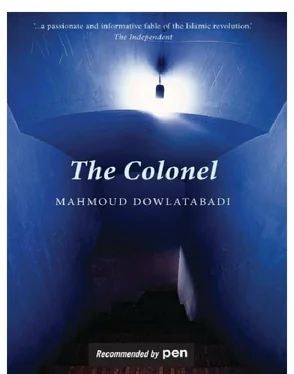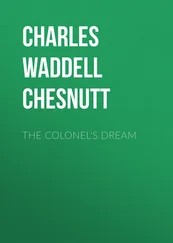28
Colonel Mohammad-Taqi Khan was killed by Kurdish levies in Khorasan, acting under the orders of the prime minister Ahmad Qavam. They cut off his head and sent it to Tehran. the colonel’s son Mohammad-Taqi is named after him.
29
The brother of Rostam, the great hero of the Shahnameh epic. Shaghad killed him by making his horse fall into a pit full of swords. The dying Rostam, with his last breath, shoots an arrow at Shaghad, which pins him to a tree.
30
The universities were closed in 1981 to prevent student disturbances.
31
One who has made the pilgrimage to Kerbela, the site of the martyrdom of the Shi’i Imam Hossein in AD680.
32
‘Lead’ harks to the period of stagnation of the Italian communist party 1969–1979, known as the anni di piombi , the years of lead.
33
President Truman’s development programme for Iran, 1952 — 55, a focal point for the Mossadeq government.
34
Big noses are ugly to Iranians. The Shah was famous for his big nose, but because he was Shah, he could not be despised for it. It became quite acceptable, even admirable, for men to have a big nose in his day. Now more nose jobs are done in Tehran, on both men and women, than anywhere else in the world.
35
In 1953 Sha’ban the Brainless was a Tehran gang leader paid by the CIA to bring the crowds out against Mossadeq. Khosrow Rouzbeh was an army officer in the communist Tudeh party, which was waiting for orders to come from Moscow to start an insurrection, which never came. Mossadeq was overthrown and the Shah returned.
36
The first of the legendary kings to rule Iran after the breakup of the empire of his great-grandfather, Fereydoun.
37
‘The Paradise of Zahra’ the main cemetery of Tehran, named after the daughter of the Prophet Muhammad.
38
After the revolution, Islamic revolutionary committees created themselves in most neighbourhoods. Initially they seemed answerable to nobody, and ran their patches with a heavy hand, invading houses to check for alcohol, ‘immoral’ parties etc.
39
Russian-made rocket propelled grenade.
40
This refers to the abortive plan of some air force officers to shoot down Khomeini’s plane on his return from Paris.
41
The Turkmen live along the NE border of Iran. Being Sunni, they made a short-lived resistance to the Shi’i Islamic revolution. On the other side of the border was Soviet Turkmenistan, which tried to provoke the Iranian Turkmen into an uprising against the Islamic government.
42
The Mojahedin-e Khalq went over to Iraq during the Iran-Iraq war, and are still considered by many to be traitors.
43
Friday is the holiday in Iran, which makes Thursday night the equivalent of our Saturday night.
44
The father of modern Persian poetry, 1896–1960, of a village background. Of the left, he bears a remarkable physical resemblance to Dowlatabadi. Yushij went to
45
Hungarian Marxist philosopher.
46
Shortly after the revolution, a number of Marxists took refuge from the Islamic regime in the forests along the Caspian, following an ancient Iranian tradition. The regime labelled them as the ‘hypocrites of the jungle.’
47
They indicate that he had not violated the colonel’s daughter. Sugar plums are offered when a young man’s family comes to ask for the hand of a girl in marriage.
48
Mohammad-Reza Shah, the last Shah of Iran.
49
In the Shah’s time, power was exercised top down, but in the post-revolutionary period orders came in a mish-mash of top-down and bottom-up: from above, through the mullas and their associates, and from below, through the newly empowered ‘komités of the oppressed.’
50
Martyrs are buried in the clothes they died in, not in a shroud.
51
It was the custom to make a stage for entertainment by placing boards over the pool in the yard.
52
The year of the coup against Mossadeq.
53
i. e. the reigns of the last two Shahs.
54
Municipalities are obliged to provide services wherever there is a mosque.
55
This is Ahmad Qavam, the prime minister who ordered the assassination of Colonel Mohammad Taqi Khan. See glossary for the history.
56
Mutasim al-Saltanah Farrokh was the Mashhad karguzar, the government official responsible for relations with the foreign consulates, and a supporter of The Colonel. Major Ismail Khan Bahador was The Colonel’s closest and staunchest supporter among the gendarmes.
57
He was assassinated by order of Nasir ud-Din Shah.
58
In 1946, to persuade the Soviets to withdraw from Iranian Azerbaijan, which they had occupied during the war, the brilliant and wily prime minister Qavam granted the Soviets an oil concession in the north of Iran, which was shortly afterwards repudiated by the parliament, thus releasing Qavam from his undertaking.
59
Heidar Amu-Oghlu, a founder of the communist Tudeh [Masses] party, killed in 1921. Sattar Khan was a nationalist hero of the Constitutionalist Movement of 1906, who died of wounds in 1914.
60
This is Taqi Arani, considered by many to have founded the Tudeh party. Like many communists, he studied in Germany, then came back to found Donya [The World] magazine. In 1937 he and 53 others were arrested for communist activities and he later died in jail.
61
Azeri Turkish: ‘I don’t recognise my son. That is not my son; show him to me.’
62
The Hezbullah in Lebanon.
63
Muslims, Muslims! This is not my son. Taqi, Taqi… Mother!
64
Leader of a revolt in Iranian Azerbaijan in 1920. MIrza Kuchik is Kuchik Khan, leader of the semi-Bolshevik Jangali revolt.
65
Qaim-Maqam (1779–1835), renowned statesman, essayist, and poet of the early Qajar period.
66
One of the first Iranians to convert to Islam during the lifetime of the Prophet Muhammad. After the death of the Prophet, he was betrayed and assassinated.
67
‘A Living Death’ [ Zendeh be-gur ] is a famous novel by Sadeq Hedayat.
68
For a full account of Pesyan, see Soldiers, Shahs and Subalterns in Iran: Opposition, Protest and Revolt 1921–1941 , Srephanie Cronin, 2010, Palgrave Macmillan.












